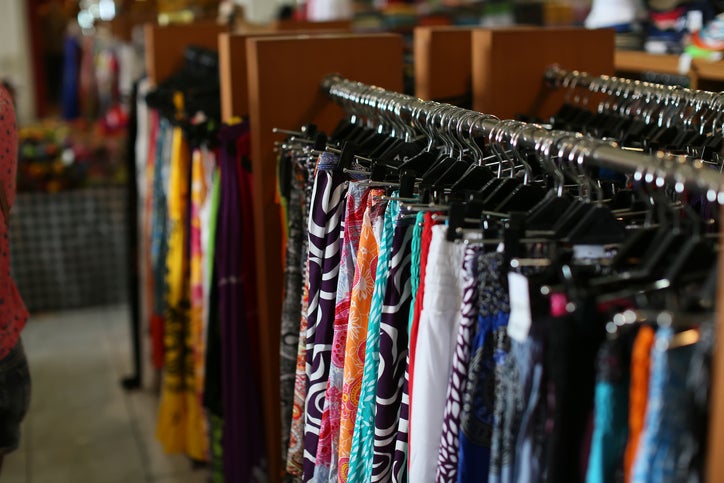
The Global Apparel Resale Market to 2027 report attributes the dampening of profits largely to the high operational costs associated with running resale platforms, which cannot be offset by user fees alone.
The report shared that although resale apparel platforms like Vinted and Depop have consistently experienced “significant revenue growth,” both recorded loses in FFY2020/21 of £118m and £85m respectively which it adds, “highlights the precarity of the market.”
According to the report, Depop’s 10% seller fee and Vinted’s reliance on paid ads and fees for boosting item visibility are not enough to support their expansion strategies, with both rapidly growing their workforces, launching in new regions, and investing heavily in marketing campaigns in recent years.
It suggested secondhand or sellers of pre-loved clothing like Depop and Vinted to instead consider increasing seller fees to cover mounting costs, however, this risks alienating customers who are already under increased financial pressure amid high inflation in regions such as Europe and North America.
Moreover, the report cited resale platforms are increasingly competing against major brands such as Zara, Shein and PrettyLittleThing, which have all recently launched in-house resale services to improve their sustainability credentials. However, it adds that these players are less reliant on generating a profit from these services, as losses can usually be offset by revenue generated from their main operations, enabling them to remain more resilient.
GlobalData’s report forecasts that as these in-house services gain greater traction, they will become more of a threat to players like Vinted and Depop, with their traditional retail propositions giving them much stronger consumer awareness.

US Tariffs are shifting - will you react or anticipate?
Don’t let policy changes catch you off guard. Stay proactive with real-time data and expert analysis.
By GlobalDataGlobal apparel resale market growth inhibitors
- Tighter consumer spending: While financial difficulties have pushed some consumers to turn to the resale market to purchase apparel at a lower cost, some consumers have been forced to cut back their apparel spend entirely to focus on essentials. The lasting effects of these difficulties will prevent some consumers from partaking in the resale market for the next few years.
- Issues with online resale platforms: While online resale platforms have improved the convenience of the resale market, they still have issues, such as the inability to return items and the reliance on sellers accurately portraying their items. These factor will continue to act as deterrents for some consumers to purchase secondhand online.
- Lingering stigma against purchasing secondhand: There are still some negative perceptions associated with shopping secondhand in some parts of the world, such as the Middle East, where purchasing new designer goods can be a symbol of social status. While these attitudes are rapidly changing due to the rising awareness of environmental issues among younger generations, resale players must ensure they alter these negative perceptions in some countries by focusing their messaging away from affordability.
- Inability to keep up with everchanging trends: The resale market might not be appealing to highly fashion-conscious consumers who want to keep up with the constant stream of new trends. The overconsumption of fashion due to the acceleration of micro-trends could also lead to an overstock of items on resale platforms, making the offer overwhelming for consumers. Resale players need to ensure they provide ways for consumers to easily navigate through their ever-growing inventories.



